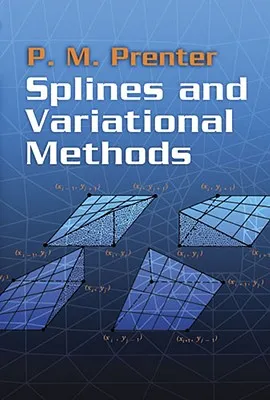Home
Variational Methods in Molecular Modeling
Loading Inventory...
Barnes and Noble
Variational Methods in Molecular Modeling
Current price: $179.99


Barnes and Noble
Variational Methods in Molecular Modeling
Current price: $179.99
Loading Inventory...
Size: OS
*Product Information may vary - to confirm product availability, pricing, and additional information please contact Barnes and Noble
This book presents tutorial overviews for many applications of variational methods to molecular modeling. Topics discussed include the Gibbs-Bogoliubov-Feynman variational principle, square-gradient models, classical density functional theories, self-consistent-field theories, phase-field methods, Ginzburg-Landau and Helfrich-type phenomenological models, dynamical density functional theory, and variational Monte Carlo methods. Illustrative examples are given to facilitate understanding of the basic concepts and quantitative prediction of the properties and rich behavior of diverse many-body systems ranging from inhomogeneous fluids, electrolytes and ionic liquids in micropores, colloidal dispersions, liquid crystals, polymer blends, lipid membranes, microemulsions, magnetic materials and high-temperature superconductors.
All chapters are written by leading experts in the field and illustrated with tutorial examples for their practical applications to specific subjects. With emphasis placed on physical understanding rather than on rigorous mathematical derivations, the content is accessible to graduate students and researchers in the broad areas of materials science and engineering, chemistry, chemical and biomolecular engineering, applied mathematics, condensed-matter physics, without specific training in theoretical physics or calculus of variations.
All chapters are written by leading experts in the field and illustrated with tutorial examples for their practical applications to specific subjects. With emphasis placed on physical understanding rather than on rigorous mathematical derivations, the content is accessible to graduate students and researchers in the broad areas of materials science and engineering, chemistry, chemical and biomolecular engineering, applied mathematics, condensed-matter physics, without specific training in theoretical physics or calculus of variations.


















